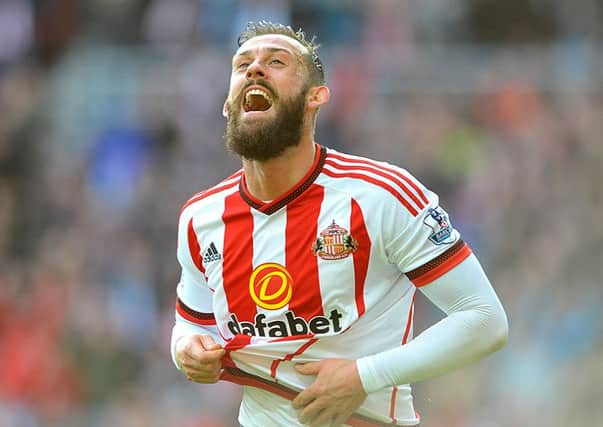Chris Young: Losing £12m players for nothing is the real cost of constantly changing manager


The Scot had been a regular in the starting XI during Gus Poyet’s first few months at the helm, yet had managed to find the net just twice - the opener in the 2-1 Wear-Tyne derby victory over Newcastle which was capped by Fabio Borini’s spectacular winner, and then the first of a late two-goal comeback to rescue a point at Cardiff.
Fletcher’s evident quality appealed to Poyet, who understandably saw the frontman as a more appealing proposition than Jozy Altidore to lead the line in a 4-3-3 set-up.
Advertisement
Hide AdAdvertisement
Hide AdHowever, the goals didn’t materialise and neither was Fletcher’s lethargic air banished.
Hull boss Steve Bruce sensed a window of opportunity for his newly-promoted side and made a bid which was roughly half the over-priced fee that Sunderland had paid Wolves 18 months earlier.
Sunderland weren’t tempted to sell to a relegation rival though, particularly when it would involve making such a hefty loss.
Fletcher didn’t score again in that injury-prone season; infamously deciding to cross, rather than shoot with a last-gasp chance to net an equaliser in the Capital One Cup final.
Advertisement
Hide AdAdvertisement
Hide AdIn fact, he scored just nine more Premier League goals in the subsequent two years of his Sunderland career.
When Fletcher did eventually depart the Stadium of Light last week - signalling the end of his time at the club with his contract expiring next summer - Sunderland barely recouped anything from their £12m outlay on the 28-year-old.
A modest loan fee and the promise of Fletcher’s wages being covered for the final four months of the season, was the meagre compensation.
For all Fletcher might not have been worth £12m (even in today’s climate of bloated fees for domestic players) that was still his value on the club’s accounts.
Advertisement
Hide AdAdvertisement
Hide AdFrom a business point of view, Sunderland have let a £12m investment go for next-to-nothing.
Neither is Fletcher the first to follow a similar pattern.
Craig Gardner took a £5m chunk of the funds from Jordan Henderson’s sale, yet returned to the West Midlands on a Bosman deal three years later.
Sunderland were looking to offload £5m buy Danny Graham for a £1m asking price last summer, yet he eventually joined Blackburn last month with the Black Cats still picking up the tab for half of his wages.
And while Sunderland might eventually recoup some money back from Emanuele Giaccherini, with the Italian impressing on loan for Bologna, it won’t be anywhere near the £7m that Juventus received in the summer of 2014.
Advertisement
Hide AdAdvertisement
Hide AdSunderland’s decision-makers have to take the blame for the pattern continuing, albeit they can never guarantee when a suitor will come along.
The money which has been squandered by this club on awful recruitment over recent seasons is THE main reason for the annual toil at the wrong end of the table. Even casual supporters have reached that conclusion.
But those wasted millions have been compounded by the inability to recoup even modest sums at the other end of the books.
Essentially, it’s the true cost of changing managers so frequently.
Advertisement
Hide AdAdvertisement
Hide AdSunderland have been forced to pay millions in compensation to managers over recent years, with Dick Advocaat the only boss to wave away any financial sum from leaving the club.
It’s not just been a case of compensating Steve Bruce, Martin O’Neill, Paolo Di Canio and Poyet either. Their back-room teams have similarly been paid off.
But such quick-fire changes in the dug-outs duly lead to opposing opinions on players, and their contracts subsequently end up dwindling down.
It comes at HUGE cost on the balance sheet.
For example, Bruce bought Gardner, but then neither O’Neill nor Di Canio were necessarily convinced about him as time wore on, and he ended up going for nothing.
Advertisement
Hide AdAdvertisement
Hide AdIf Allardyce is at the helm for two or three years (and with Sunderland’s record, there’s precious little guarantee of that) he can manage the contract situations and make a decision on those he doesn’t want a year or two before their deals expire.
He has already shown he takes a pro-active approach to contracts after immediately sealing fresh deals for Duncan Watmore, Jordan Pickford and Rees Greenwood since taking charge at the Stadium of Light.
But the contract situation has to change.
The price Sunderland have paid for letting big money investments leave for nothing now runs into tens of millions.